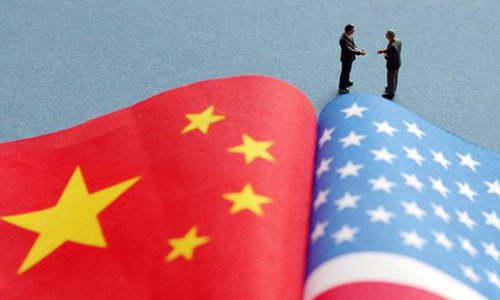New China-US dialogue will be positive step for solving disputes: expert
By Wang Bozun Source:Global Times Published: 2020/1/12 21:33:40

Photo: VCG
The reported new China-US dialogue arrangement on addressing disputes is different from previous strategic dialogues and is unlikely to bring China-US trade relations back to where they were before, but it is a positive step toward better relations, a Chinese expert said on Sunday.The Wall Street Journal reported that Beijing and Washington agreed to launch a new semi-annual dialogue mechanism that is set to be announced on Wednesday, when the two countries sign the phase one trade deal.
The new dialogue "includes a dispute-resolution section that envisions consultations between the two nations to handle any conflicts arising from the agreement" and is similar to the Strategic Economic Dialogue (SED) talks that started in the George W. Bush administration and continued into the Barack Obama administration, the report said.
The reported new dialogue will not be same as the SED, and they would not be that friendly, because the US national strategy of "America First" has decided that it is not the Obama-era US, Chen Fengying, a research fellow at the China Institutes of Contemporary International Relations in Beijing, told the Global Times on Sunday.
"It is hard to predict that the new mechanism will take dialogue between the two countries back to normal, given the US protectionism under President Donald Trump, but it shows that, instead of fighting [a trade war], the US now emphasizes solving problems through dialogue, which is much better than no dialogue at all," Chen noted.
As the two countries are set to sign the long-anticipated phase one trade deal, there is speculation on when negotiations for the second phase will start. Trump, days before a Chinese envoy is due in Washington to sign the phase one pact, said the phase two talks "will start right away after the signing," according to media reports.
However, Chen said that "Trump needs the phase two talks to distract domestic attention from his impeachment, just like what he has done to Iran," and China needs to see how the phase one deal works, and "there is much work that needs to be done for China, so it [phase two talks] is not likely to start soon."
Chen cautioned that after the phase one deal is signed, the situation of "talking while fighting" between the two countries will continue.
"Just take a look at what happened between the US and Japan, the EU, Canada and the Mexico," Chen said.
Posted in: ECONOMY,CHINA-US